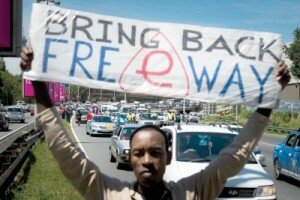worldphoto.org
Speaking to HumanIPO, Julie Taylor, Head of Communications and Public Affairs for Google in Sub-Saharan Africa, revealed the region had seen views grow by 90 per cent from 2011 to 2012, while uploads grew by 40 per cent.
In order to respond to this demand, YouTube has launched a number of initiatives to facilitate use across Africa, with specific regard for the regional preference for mobile internet and the low internet speeds which often occur across the continent.
“YouTube is accessible via mobile, which is important for African users,” says Taylor, noting one in four YouTube views originates from a mobile device, with the African population in particular favouring mobile over fixed connections.
“We also offer YouTube Feather which helps videos load and play faster for those with a low speed connection,” she added.
In order to make the viewing of local content easier for users, the video streaming site has implemented a number of local versions in Africa - with the top three regional users of local domains being South Africa, Kenya and Ghana, with Nigeria following in fourth.
“We have launched local domains in six countries,” said Taylor. “A localized version of YouTube means that it is easier for users to find and view locally relevant videos. For example, content uploaded by South African users will surface first in the browsing pages for users who visit YouTube within South Africa.”
This system of localised versions also helps overcome some of the challenges presented by the differing views and laws existing across the continent, recently highlighted by the controversy in Egypt caused by YouTube’s hosting of the “Innocence of Muslims” video.
“We work hard to create a community everyone can enjoy and which also enables people to express different opinions. This can be a challenge because what's OK in one country may be offensive or illegal elsewhere. The authorities in Egypt have notified us of individual videos that they believe are illegal and, after a thorough review, we have blocked access to them on the Egyptian version of YouTube,” said Taylor.
According to Taylor, YouTube has a unique social role to play in Africa, as well as globally.
“YouTube is a video site with deep social roots: it’s the home of the viral video. Social is just [as] important in Africa as other regions,” she said.



















































